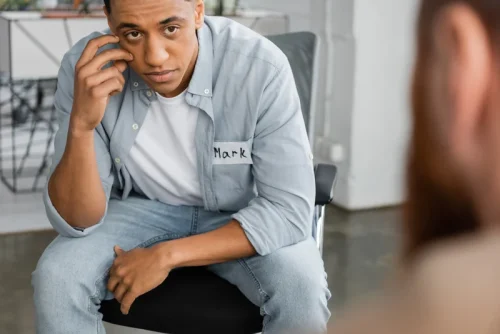
Here I highlight important work being done at NIDA and other news related to the science of drug use and addiction. Find out the answers to these questions and more with Psychology Today. American Addiction Centers’ free, no-obligation confidential text help line offers the support you need, when you need it. A previously criminalized drug across the country, marijuana is now widely legalized in many areas for medicinal and recreational use.
Syringe services for people who inject drugs are enormously effective, but remain underused
- But abstinence is a high bar comparable to requiring that an antidepressant produce complete remission of depression or that an analgesic completely eliminate pain.
- As of this writing, the federal government considers marijuana use in any form to be illegal.
- Treatment is often sought because the long-term use of marijuana can lead to addiction, and individuals looking to quit have to deal with challenging withdrawal symptoms that can keep them from stopping their marijuana abuse.
- You should begin by asking if the conversation will be kept confidential.
- They can offer the encouragement and support that you need to be successful.
However, there is still a growing discrepancy with who actually seeks out and receives treatment. According to the Substance Abuse and Mental Health Services Administration (SAMHSA), “In 2018, an estimated 21.2 million people aged 12 or older needed substance use treatment.” Simplified, that number translates to about 1 in 13 Americans. Addiction services is an umbrella term that acknowledges that people need a variety of options to fit their unique circumstances. This can range from treatments like medications or psychotherapy to harm reduction services to sobering centers.
Can You Go To Rehab For Marijuana?
- The bottom line is that more research is needed which will clarify the role of cannabis as a treatment for IBS, and what dosages could help with digestive issues.
- Outpatient marijuana rehab is a less intensive treatment option for people with a marijuana use disorder.
- With a primarily psychological drug like marijuana, it is also crucial to implement cognitive behavioral therapy as well as other therapeutic methods.
- So they tend to use it infrequently or only during social occasions.
- Individuals, who smoke weed regularly, may develop significant cannabis dependence.
- It is often used with cancer patients because it decreases gut transit and increases colon compliance.
The first researcher to make a connection between marijuana and IBS was Ethan B. Russo who, in 2003, theorized that IBS and other health conditions were the results of a deficiency in the amount of the body’s own cannabinoid chemicals. People have used marijuana for centuries in order to feel high, as part of a spiritual practice, or to ease symptoms of pain, nausea, and vomiting. Its use for medicinal purposes is controversial and remains a matter of great debate among users, scientists, and governing bodies. COVID-19 has now led to the working professional and the parent being able to get services that otherwise wouldn’t have existed. But keeping outdated modes of treatment as the required standard will only prevent more and more of them from accessing the treatment they deserve.

Holistic Approaches
However, a number of states have either made the use of recreational or medical marijuana legal. As of now, there do not seem to be many research studies on the use of smoked marijuana for IBS. From the few randomized controlled trials that do exist, one theory is that cannabinoids in marijuana affect acetylcholine and opioid receptors in addition to cannabis receptors, in this way providing IBS symptom improvement. The length of treatment depends is marijuana addictive on several factors, including your needs, level of care, substance used, severity of your disorder, other co-occurring conditions, among other things.

How long is outpatient rehab for marijuana addiction?
Marijuana (also known as Weed or Pot) is the most frequently abused drug in the US and makes up 17% of admissions to treatment programs1. The last factor to consider is the legality of medical marijuana for IBS as most, if not all, state laws have not yet necessarily included IBS as a specified allowed condition. Medications or strains of medical marijuana that are high in CBD but low in THC will not cause you to experience “high” sensations.
- If you believe you or a loved one’s marijuana use is starting to affect your ability to function and/or complete daily activities and responsibilities, then a weed addiction helpline may be a good place to start.
- People who use tobacco or other substances are more likely to experience withdrawal when they stop smoking marijuana.
- Marijuana addiction helplines offer a toll-free, confidential, and 24-hour solution to find addiction treatment if you or a loved one are struggling to quit.
- Traditionally, as I have seen with my own recovery center, both of these populations have been reluctant to enter into treatment.
Paying for Treatment
By the same token, reduction of substance use has important public health benefits as well as clinical benefits for patients, and recognition of this could greatly advance medication development for treatment of addiction and its symptoms. There is little scientific evidence to support the stereotype that people who return to use after a period of abstinence inevitably do so at the same intensity. Some research on post-treatment patterns of alcohol and other drug use in adolescents suggests that returns to use, when they occur, are often at a lower intensity than before11. Objective assessment of use reduction for illicit substances presents a greater difficulty given variability and uncertainty of the composition and purity of illicit drugs purchased.
- Meanwhile, marijuana refers to the drug which consists of dried leaves, flowers, seeds, and stems.
- Here I highlight important work being done at NIDA and other news related to the science of drug use and addiction.
- You can either gradually wean yourself off the drug or stop smoking cold turkey.
- John C. Umhau, MD, MPH, CPE is board-certified in addiction medicine and preventative medicine.
- Although proponents of marijuana argue that it can be used safely, it is not without risks.
- A representative can help you determine the extent of your problems with marijuana and connect you with a treatment facility if necessary.
However, chronic users or people who use daily suffer from marijuana abuse. A person is diagnosed with marijuana use disorder when their drug use becomes problematic. Many people receiving treatment for marijuana addiction also undergo behavioral therapy. Substance abuse treatment that works for one person might not be the best option for another. If you are looking for help with your marijuana use disorder, it is essential to review your healthcare options and pick the best type of treatment for you.

Marijuana Hotline
It’s understandable being nervous when you first reach out for help. However, be assured that the people answering the phone won’t judge you and are there to help. A call to a reputable helpline is private and free and can help calm any fears you may have about treatment. If you are ready to make a positive change today or just take a step in that direction, call an addiction hotline to start you or a loved one on the path to recovery. A number of the effects mentioned above may develop or worsen over time and become long-term effects of marijuana Sober living house with prolonged use.
Is it hard to imagine life without being high?

Get professional help from an online addiction and mental health counselor from BetterHelp. Most marijuana rehabilitation programs are covered by medical insurance. If you don’t have insurance, many facilities offer sliding scale fees or payment plans for patients who can’t afford to pay upfront. Outpatient treatment offers the same therapies and treatments as inpatient treatment programs.
